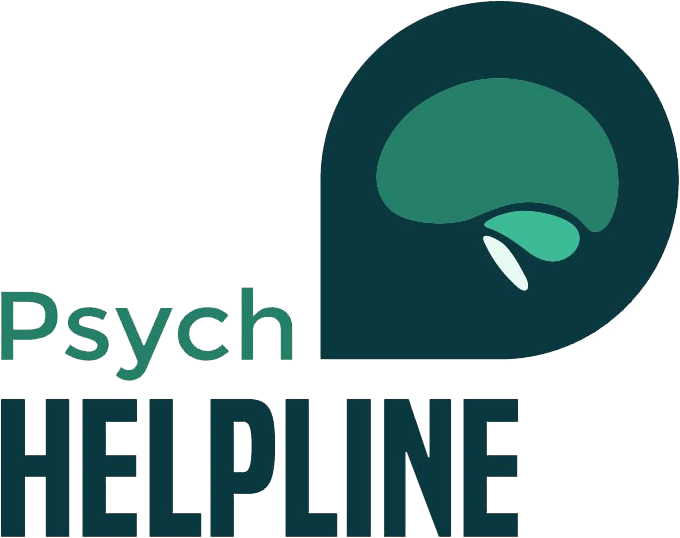Table of Contents

The following propositions are based on the data we’ve collected from relevant mental health experts. Whether it’s a book or a month-long program, we’ve also used each proposition’s success rate as a base to determine their status as a satisfactory option. Some other aspects that we have not overlooked in these court-approved sessions are the professional/unprofessional attitude of relevant conductors, monetary value or budget, and these classes’ credibility.
Anger Management Classes: 4 Flexible Measures For All
1. Udemy’s Online Course On Anger Management Techniques
Cost: $14.99 (Students are eligible for discount)
Udemy’s curricular/academic courses are known for smooth sailing the exam weeks for so many people around the globe. Little did you know, Udemy has the perfect solution for your anger management issues too. What we’re referring to is its “Anger Management Techniques That Actually Work” 3-hour long course that also gives participants access to so many helpful resources. This course precisely focuses on anger managing tactics, emotion management, and meditative measures.
2. James A Baker’s “Anger Busting Workbook”
Cost: $85 for the 8-hour course
$90 for the 16-hour course
$100 for the 24-hour course
Course based around this particular workbook gets conducted by the Anger Management Training Institute. As this is a court-approved course you’ll be presented with a certificate upon completion. Additionally, this course covers strategies to overcome anger during daily life as well as the interlinking aspects between anger and potential addiction. If you’re on probation, this is what you’re looking for my friend!
3. The Logan Group Int.’s Course On Managing Road Rage
Cost: 4 hours for $24.95
8 hours for $39.95
Attending this session also ensures that you’re leaving with a certificate of completion once you complete the course. If you’ve been on probation due to road rage-related crimes, you’ll be glad to know that this is a court-mandated course. Furthermore, you’ll be under the supervision of licensed counselors while working on your road rage issues at your own gradual pace.
4. Ultimate Anger Management Course by John Schinnerer
Cost: $69.95 for 15-weeks
People working through relationship troubles as a result of anger management issues can find this course pretty resourceful. Mainly it’s conducted via videos, it’s developed by a relationship expert and it’s court-approved. Participants can save up the helpful resources/videos for future purposes. The focus of this course will mainly be on bringing normalcy to your emotional range while tackling financial and personal situations. You’ll also learn how to recognize the triggers that result in your ill management of rage.
Anger Management Guide
If you have anger issues or are dealing with someone who has them, deducing the triggers is quite important. Similarly, you need your fair share of information regarding anger management if you want to take a step towards salvation. Don’t get it twisted, getting angry at something/someone is as natural as showing any other emotions. Things only take a negative turn when these emotions become way harder to control. Consequently, this uncontrollable urge to produce violent outbursts ends up destroying your personal and professional life. Even worse, in some cases, individuals can get in trouble with the law and face incarceration.
Anger Issues: Some Common Triggers
If you don’t understand the things that set you off, how would you expect to seek recovery? Every case varies for every individual but here are some triggers that generally take a toll on individuals with anger issues;
-
Lack Of Appreciation Or Acknowledgement
It’s a solid fact that besides food, water, and shelter the most important thing most humans need for survival, is their fair share of appreciation. Lack of timely acknowledgment can set the course towards disappointment which ultimately leads to anger. It’s fair to say, that when we don’t get acknowledged for any of our efforts, it does take a toll on us. One can only imagine the consequences of such disappointment on people with aggravating anger issues. Anger is an emotion that fuels people’s negative responses to neglect. Thus, it can really push someone’s buttons when they’re being pushed to a side at their workplace or home.
-
Trauma & Memories Of Exploitation
Not everyone reacts to a traumatic event in a similar manner. Some people choose to completely shut down. It’s a habit that isn’t limited to introverts. Meanwhile, some people uncontrollably blow over and let their anger flow over. A great example of this could be the extreme anger and resentment a victim of sexual assault would exhibit when faced by their abuser. Of course, not everyone who has been abused would react this way but a person with anger issues may get triggered by something similar. A huge reason behind the development of anger issues in people is their unstable childhood or history of exploitation in the past. As a result of these violations in the early stages of life, survivors fail to establish the tendency to control their emotions. So, once anger starts flowing, it continues to overflow. Thus, unexpectedly mentioning someone’s history of abuse can really trigger their extreme anger issues and cause them to lash out.
Anger Management: Humble Beginnings
Now that we’ve established the base of our argument, we can proceed with the solution. Managing your anger-related tendencies is hard when you’re relearning normal behavioral instincts. Anyone can read a self-help book but it rarely shows you desired results. That’s when you should know, you need an expert’s involvement in this matter. Attending an anger management group session or private sessions with a counselor can give you a brand new perspective on things. The goal is to manage your anger instead of holding it in. Now the question remains; How exactly can you link up with someone who can lend professional assistance? Here’s how;
- There’s a long list of online blogs run by mental health professionals and similar support groups. You can check into their resources sections and attend online sessions when you get a chance
- Ask a local doctor or a mental health professional to provide you a referral
- If you know anyone else with anger management issues, ask them for recommendations regarding therapists and counselors
- If you’ve committed a crime fueled with rage, you’ll be ordered to attend sessions and provided with a court-ordered counselor
- If there’s an employee assistance program at your workplace, seize that opportunity
Anger Management: Preparations and Expectations
- As stated earlier, while attending these sessions you’ll be able to recognize all the triggers and stressors that set you off. Similarly, you’ll be able to deduce the physical signs that indicate the onset of rage in you. For example; some people start clenching their jaws when they start losing their marbles. While you’re talking to a counselor make notes of everything that comes up regarding your rage and what sets it in motion.
- Apart from anger management, you’ll have to work on any other mental health issues such as anxiety. Usually, these issues can worsen your situation and need to be curbed to an extent if you actually want to see improvement.
- If you’re attending group sessions you should be prepared for less privacy
- Another amazing thing you can expect to notice as a result of these sessions is a noticeable improvement in your problem-solving skills.
- The number of sessions usually lies between 9-30 and classes are mostly kept weekly
- What you learn during your anger management classes is what you’re going to apply to yourself once you get back home. Your road to recovery doesn’t end when a 2-hour session ends. If you’ve learned that hunger or lack of enough sleep makes your rage gets the best of you, quit indulging in these unhealthy habits.
- Participants can also expect an in-depth introduction to new relaxation techniques and behavioral alterations
- You can also expect these sessions in helping you understand the difference between assertion and aggression. The assertion isn’t an unnatural thing and it can actually become very important in situations where you’re being cheated on. Meanwhile, aggression is the last thing anyone should show. Your anger issues can blur the lines between both of these phenomena and therapy can draw the line once again.
Anger Management: 7 Signs You Might Be On The Verge Of Needing Help
- You’ve initiated physical abuse towards your s/o or children
- If you get the urge that there’s way too much anger residing inside you and it’s bound to break free someday
- You’re unable to reach an agreement with people without getting angry
- You curse out people way too much when frustrated
- You’ve threatened people with physical harm when under the control of rage
- You indulge in reckless driving and other reckless behavior when angry
- You end up breaking things around the house during your violent outbursts

Unhealthy Tactics: Anger Suppression & Expression
Here are a few unhealthy ways people choose to curb their aggressive tendencies;
- In an argument, a person with anger issues is more likely to be less constructive. Instead of finding a middle ground, you can expect them to turn more critical over baseless reasons. There can also be a hint of sarcasm in everything they say as rage can completely block out their capabilities to think things through.
- Destructive expression of anger is something that we have all seen in films & TV shows. The angry villain or hero chooses to destruct every single that comes in his way when he’s angry. Similarly, any angry individual will take ou his/her frustration on any immaterial things nearby. For example; destroying house furniture, breaking dishes, punching a wall, etc.
- Perhaps the most dangerous out of all these unhealthy tactics is taking out anger on people close to you. Not every person with anger issues is physically or emotionally abusive but a significant number of people are. Thus they don’t shy away from using hurtful words or raising a hand even when the person in front of them is a dear one.
Why Do You Need Anger Management Counseling & Therapy?
Here are a few reasons why attending any therapeutic anger management sessions is a great idea;
- It helps in reducing the physiological and psychological consequences of uncontrollable anger
- It is an opportunity to express your needs as you’ve never done it before
- It helps in identifying major triggers that fuel your anger
- It prepares you for future meltdowns and saves you from embarrassment
- It introduces you to new but healthier responses to triggers
- It aids you in controlling the urge to pick up verbal altercations and physical fights for no reasons
- It prepares you to make much calmer mutual agreements with the ones around you
- It gradually decreases the overflow of overwhelming emotional responses and can save your future romantic relationships
Anger Management: 4 Casual Measures & Small Improvement
1. Try Your Hand At Meditation
First off on our list is meditation. The goal for most of these practices you’re going to be adopting is to include calmness in your life. So, what’s better than introducing some zen into your routine? Meditation and yoga, are some of the most widely recognized means of reducing stress. Stress caused by workload, personal concerns, romantic relationships can really trigger you if you’re unable to control your anger. As stated earlier, the consequences of this uncontrollable anger are unless. So, it’s only fair that you start your day with something that sets your head in the right place. Meditation also helps you regulate your breathing levels, heart rate, and blood pressure. You get a chance to wake up every morning and reflect on the important things around you. So, bid adieu to the physical impact of anger in the long run if you’re going to stick to this healthy practice.
2. Music & ASMR
Various studies back up the claim that music really does lower down frustration levels. It can regulate emotions and help your brain slow down to its normal pace when you’re fuming. There’s a variety of slow jam playlists on Spotify as well as Youtube. If that doesn’t work, ASMR surely won’t disappoint you. You’ve just got to find something that works best for you. Some ASMR video & audio creators have a collection of eating sounds, thunder sounds, white noise, slow-talking, whispering, etc. So, take a look at what you’ve got and create a playlist to tune into whenever you feel like anger’s going to take the best of you.
3. Give Your Limbs A Little Twist
Anger fuels people’s bodies and the adrenaline can actually force you to become a mightier version of yourself. So, why not direct that energy towards something that doesn’t harm you or anyone else? If you feel a sudden rush of anger taking over your body, turn around and take a walk. Start working out whenever you get the time, it redirects your attention away from stressors and calms your nerves down. Don’t have any fancy gym equipment? No sweat, just start stretching on your own or try Zumba. Breathing exercises should be on top of your preferences as they show extremely positive results.
4. Keep A Record
Keeping a personal diary or journal will of course seem like a cliché. Some might not even take this suggestion seriously, but the results are truly immaculate. Every night penning down the usual happenings and anger meltdown that happened during the day gives you a chance of reflection. While writing things down you get the opportunity to wonder what exactly triggered you? Could you have controlled that particular thing? Are there any other reasonable solutions to that problem if you ever face it in the future? Keeping a journal can also be therapeutic considering how you’re pouring your heart out. It’s an additional perk for those who need to talk to someone but really don’t trust anyone enough.
Final Words
Anger Management is a slow yet gradual process. Thus you need to know whether you’re actually making a recovery or not as it pushes you to do better. You can always go back on the old entries in your journal and see your progress to give yourself a pat on the back! If you’re regretful for the behavior you exhibit when you’re angry, you’re aware of your issues. So instead of sulking over what has already happened, take a chance on yourself. There are multiple ways to seek help for what’s causing you and others around you harm. Talk to a local mental health professional or find resources at a community center. Life’s too short to waste it away in a raging haze. We hope that this article answered every necessary query you had regarding anger issues and anger management.






